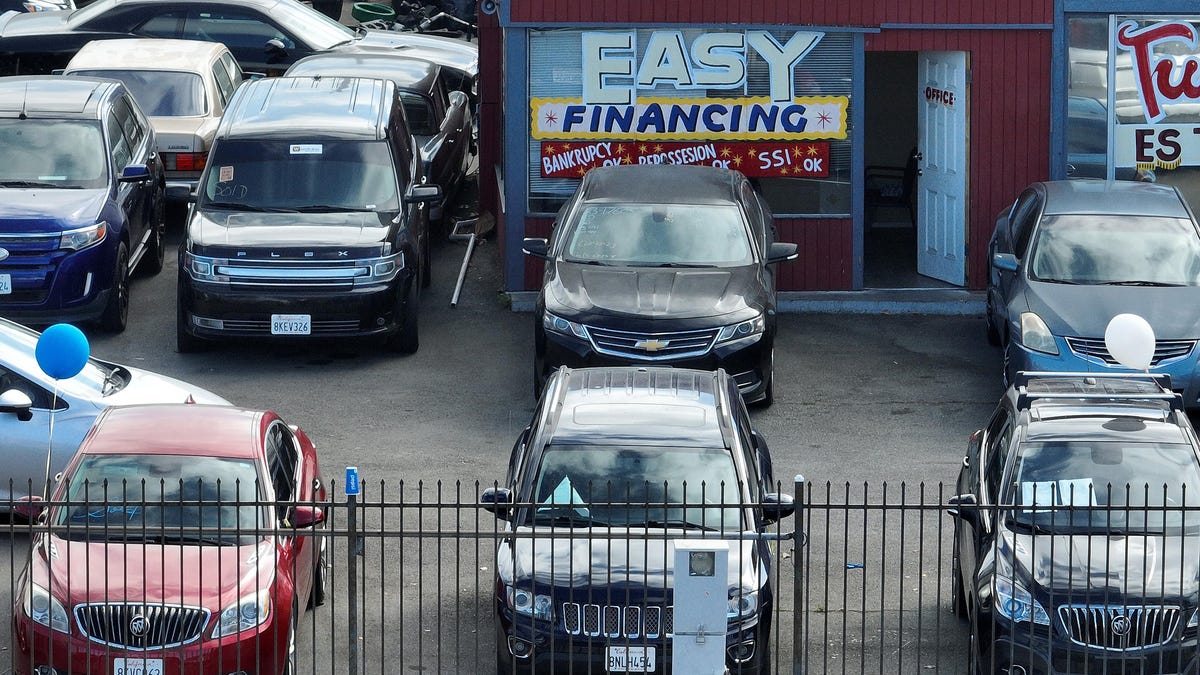Every year, the price of a new car ticks ever upwards. Loans get longer, yet monthly payments are always on the rise, leading to an epidemic of folks underwater on their loans. Now, there’s a new complicating factor: Used car prices are falling, meaning folks are getting less for their over-leveraged trade than ever.
A new report from Edmunds looked at used car prices compared with trades that have negative equity and found that a drop in the former has led to a steep rise in the latter. According to the report, this isn’t even unexpected — it’s a natural progression from the lockdown-era used car boom. From Edmunds:
“A storm is brewing in the used market as incentives and inventory continue to trickle back into the new vehicle market,” said Ivan Drury, Edmunds’ director of insights. “With demand for near-new vehicles on the decline, used car values are depreciating similarly to the way they did before the pandemic, and negative equity is rearing its ugly head.”
“During the last few years, consumers could jump into new car loans and their trade-ins were shielded from negative equity because some dealers, desperate for used inventory, were willing to pay near original purchase prices,” said Drury. “These days, consumers need to be more careful — especially if they’re trading in newer vehicles — because near-new cars are being hit the hardest by depreciation.”
As the floor falls out from under the used car market, new car buyers are going to end up more and more in over their head on loans. But while some may take this as bad news for new-car buyers and good news for those of us who scrounge Facebook Marketplace for shitboxes, Edmunds says we shouldn’t start popping bottles just yet. Things are bad for us broke bitches too.
Although a downturn in used values is negatively affecting a growing share of new car owners, Edmunds analysts note that there’s a bright spot for car shoppers with bigger budgets. In an analysis of ATPs of 0- to 3-year-old vehicles compared to ATPs for new vehicles, Edmunds data reveals that luxury large cars offered an average discount of $48,111 — the greatest dollar savings across all vehicle segments — with new vehicles going for $118,309 compared to $70,198 for used. Large mainstream SUVs also offered a notable average discount of $19,966, with new vehicles going for $76,131 compared to $56,164 for used.
“If you want to save big on used versus new, you still have to be willing to spend big,” said Joseph Yoon, Edmunds’ consumer insights analyst. “Unfortunately, the most price-sensitive consumers seeking affordable transportation will have a much harder time finding discounts because the supply of older used vehicles is still pretty restricted.”
The deals are there, but only for folks looking to spend over $55,000 — up to $70,000 — for big, luxurious, late-model cars. The rest of us, it seems, may be stuck paying ear-lockdown prices forever — if we can even find cars we want to buy.







